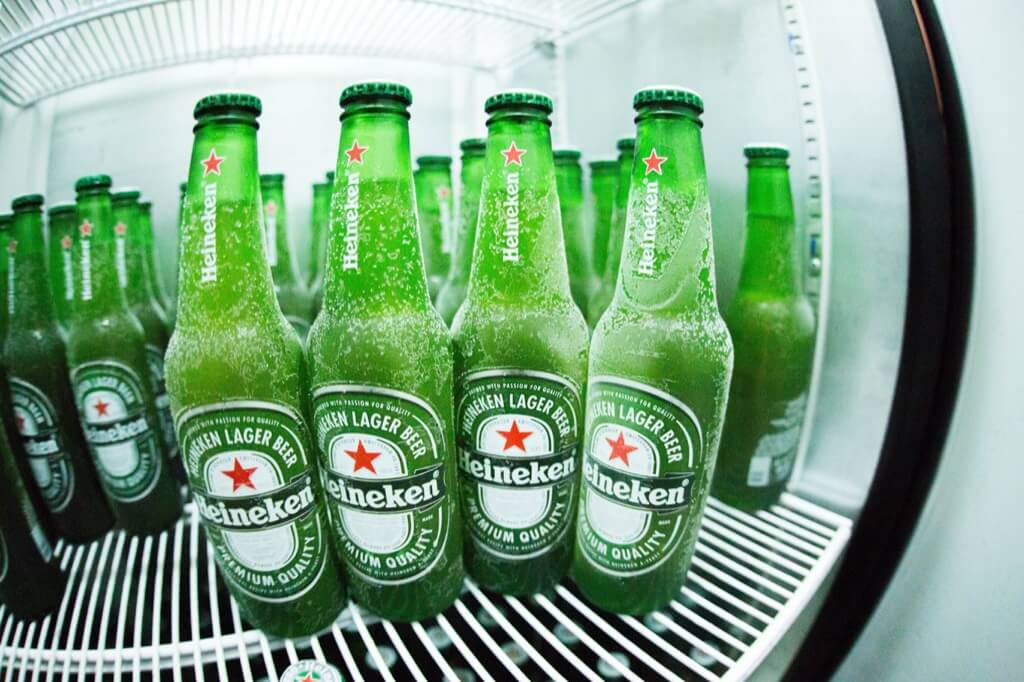Understanding the intricacies of a mature grape’s essence is often associated with refinement. From Hollywood’s portrayal of characters sipping on pricey wines to the infamous Hannibal Lecter’s fondness for chianti, the allure of wine sophistication remains ingrained in popular culture. But can seasoned wine experts distinguish between a Chateau Cheval Blanc 1943 and a humble Bota Box Chardonnay?
Becoming a sommelier entails a spectrum of paths, ranging from informal experience-based learning to the rigorous journey pursued by Master Sommeliers, a rare and exclusive group comprising less than 300 individuals worldwide. Many begin their journey as wine bar waiters, gradually immersing themselves in the art of wine under real-world conditions.
According to sommelier Dustin Wilson, formal certification aids aspiring sommeliers in their quest for profound wine knowledge, offering a structured approach to learning the intricate details over time.
The Journey toward certification is No Easy Feat
Sommeliers undergo extensive training to develop their palate, understanding, and knowledge of wine production, major wine regions, and the unique characteristics that define each wine. The certification process itself varies in difficulty, demanding a comprehensive understanding of meal pairings, as well as practical skills like wine service and presentation.
However, the reality is that the distinction between wine professionals is not as clear-cut as one might expect. While some possess an exceptional ability to judge wines, others may not surpass the discerning capabilities of an average wine enthusiast.
Master Sommeliers, the crème de la crème of the industry, earn significantly more than their counterparts, with top professionals commanding high salaries in the range of $150,000 annually. Nonetheless, the enigma remains: can even these esteemed professionals consistently pinpoint the disparities between wines of varying price points?
The Truth is a Bit More Complex
The commercial aspect of wine production plays a significant role in determining the price of a wine, often influencing perceptions of quality. Scientific advancements have led to the enhancement of mass-produced wines, blurring the line between expensive and more affordable options.
Furthermore, studies suggest that while the general public can distinguish between wines of different price ranges to a certain extent, the distinction becomes increasingly challenging as the price point rises. Surprisingly, a small correlation exists between the price of wine and the preference among consumers, with wine enthusiasts often exhibiting a positive bias towards higher-priced wines.
The tasting ability of even the most experienced sommeliers can be influenced by various factors, including environmental cues, personal biases, and physical conditions. Temperature, for instance, can significantly alter the perception of certain flavor compounds in wine, underscoring the intricate nature of wine tasting.
Numerous experiments have highlighted the inherent complexities of wine tasting, with experts displaying inconsistencies in their judgments, occasionally falling prey to the power of suggestion and environmental influences. This further accentuates the subjectivity of wine appreciation, emphasizing the importance of individual preferences in the overall wine experience.
Ultimately, the Appreciation of Wine Remains a Deeply Personal and Subjective Matter
Whether savoring an affordable bottle with friends or indulging in a high-priced vintage, the true essence of wine lies in the enjoyment it brings to the individual, independent of price tags and accolades.
You might be wondering how you can enhance your wine-tasting skills and truly appreciate the complexity of various wine offerings. Delving into the world of wines can be both exciting and rewarding, allowing you to develop a deeper understanding of this cherished beverage. Here are some practical steps and tips to help you on your journey toward becoming a wine connoisseur.
Developing Your Palate
Embrace the art of tasting: Begin by familiarizing yourself with the basic flavors and characteristics of different wine varieties. Take your time to savor each sip, paying attention to the nuances of taste, aroma, and texture.
Expand your wine horizons: Experiment with a diverse range of wines, including both affordable and more expensive options. This will help you develop a comprehensive understanding of various flavor profiles and broaden your wine appreciation.
Attend tasting events and workshops: Take advantage of local wine-tasting events and workshops to expose yourself to a variety of wines and learn from experienced sommeliers. These gatherings can provide valuable insights and practical knowledge to refine your tasting skills.
Understanding Wine Production and Regions
Explore wine regions and production techniques: Familiarize yourself with the major wine-producing regions and their unique characteristics. Learn about the different production techniques that contribute to the distinct flavors and qualities of wines from various parts of the world.
Study the art of wine-making: Dive into the intricate process of wine production, from grape harvesting to fermentation and aging. Understanding the science behind wine-making can deepen your appreciation for the craftsmanship that goes into creating each bottle.
Pairing Wine with Food
Master the art of food and wine pairing: Experiment with different food and wine combinations to understand how flavors interact and complement each other. Learn about classic pairings and discover your preferences through trial and error.
Consider the context: Keep in mind the setting and occasion when selecting wine for a meal. Whether it’s a casual gathering or a formal dinner, choosing the right wine to accompany the cuisine can elevate the overall dining experience.
Cultivating an Open Mind
Embrace diverse preferences: Recognize that everyone’s taste in wine is unique, and there’s no one-size-fits-all approach to wine appreciation. Respect and appreciate the diversity of wine choices and allow yourself to explore a variety of options.
Stay curious and adventurous: Maintain a sense of curiosity and adventure as you continue to explore different wines and expand your palate. Be open to trying new varietals and styles, allowing yourself to discover hidden gems that resonate with your personal preferences.
Enjoying the Experience
Savor each moment: Above all, remember to enjoy the journey of discovering and experiencing the world of wine. Whether you’re enjoying a glass of your favorite vintage or exploring new labels, cherish the moments and the stories behind each bottle.
Pros and Cons of Becoming a Wine Connoisseur through WSET Studies
The world of wine offers an enticing opportunity for enthusiasts to deepen their understanding and appreciation through structured programs such as the Wine & Spirit Education Trust (WSET). While pursuing WSET qualifications can significantly enhance your wine knowledge and tasting skills, it’s important to consider both the advantages and drawbacks before embarking on this educational journey.
Pros of WSET Studies
Comprehensive Wine Education: The WSET curriculum provides a comprehensive and structured approach to wine education, covering various aspects such as wine production, tasting techniques, and global wine regions. This extensive knowledge base can lay a strong foundation for a successful career in the wine industry.
Professional Recognition and Credibility: Obtaining WSET qualifications can enhance your professional credibility within the wine industry, opening up opportunities for career advancement and networking with industry professionals. Employers often value WSET certifications, considering them as a testament to your expertise and dedication to the field.
Refined Tasting Skills: Through rigorous tasting sessions and sensory evaluations, WSET studies can refine your palate and sensory perception, enabling you to discern intricate flavor profiles and characteristics of different wines with greater precision and confidence.
Global Exposure and Industry Insights: WSET programs offer insights into the global wine market, exposing you to diverse wine cultures and industry practices worldwide. This global perspective can broaden your understanding of wine production, distribution, and consumer preferences on an international scale.
Cons of WSET Studies
Time and Financial Commitment: Pursuing WSET qualifications requires a significant investment of time and financial resources. From the costs of the courses and study materials to the hours dedicated to extensive tasting sessions and theoretical study, the commitment can be demanding, particularly for those with other professional or personal responsibilities.
Competitive Industry Landscape: While WSET certifications can enhance your credentials, the wine industry remains highly competitive, with numerous individuals vying for prestigious positions and opportunities. Securing a prominent role solely based on WSET qualifications might require additional industry experience and networking.
Subjectivity and Personal Preferences: Despite the structured approach of WSET studies, wine appreciation remains a subjective experience, influenced by individual preferences and tasting biases. The emphasis on standardization in the WSET curriculum might overshadow the diversity and personal aspects of wine enjoyment, limiting the exploration of individual wine preferences.
Narrow Focus and Practical Application: While WSET studies offer a comprehensive theoretical understanding of wines, the practical application of this knowledge might be limited, especially in scenarios where real-world experiences and on-the-job training play a crucial role. Practical challenges and dynamic market trends might require adaptive skills beyond the scope of the WSET curriculum.




